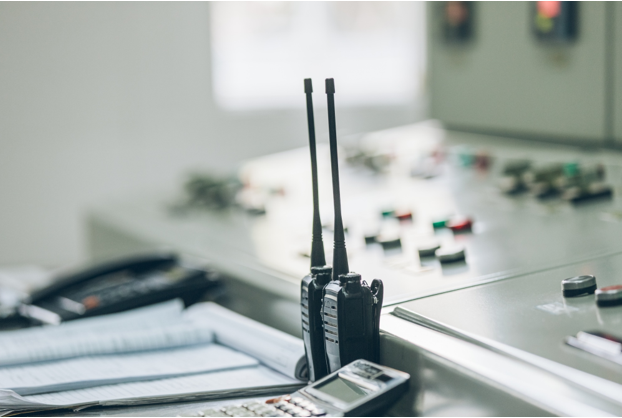This complete guide compares wired and wireless business security alarm systems, covering how they work, which is best for different business sizes, and what modern features to expect.
As a business owner, you doubtless have many precious assets that you’d like to protect. These could range from company data to cargo in your warehouse and so on.
That’s why you hire round-the-clock security, have cameras all around, and install numeric keypads outside each facility. But you still feel like something is missing. What could it be?
The answer here is wired or wireless business security alarms. These alarms will add the final layer of safety to your enterprise.
Why Does Your Business Need a Security Alarm System?
One of the most basic reasons you need a security alarm system is that it will help you improve your existing security. You will be able to guard better against theft, vandalism, and unauthorized access.
It will alert your nearby security personnel if someone tries to get into your facility. An advanced alarm system will also send the alerts to a centralized surveillance unit, which can take the necessary action.
In fact, it can also help bring the police personnel in. For example, in Dubai, the wireless alarm system is connected to the Dubai Police Smart Home Security System.
Upon receiving an alarm, they decide whether or not to alert the authorities.
Installing a business security alarmalso helps you with insurance claims. Insurance companies will feel reassured by your alarms and offer you a higher premium due to the low risk factor.
Wired vs Wireless Security Alarms for Businesses: How Do They Compare?
Both wired and wireless security alarm systems work differently. Let’s explore the same below.
How Do Wired Security Alarms Work?
The working of a wired security alarm can be explained in 4 steps:
- The sensor detects any motion or activity and turns on or gets activated
- It transmits the signal to the control panel
- The control panel processes the signal
- It triggers the alarm, or not, depending on what it detects
Let’s explore these steps in detail below.
Motion Detection
First, the sensors detect any motion or activity. These sensors are installed either on the door, the window panes. Some other types of sensors include passive IR sensors. Passive IR sensors measure infrared radiation from objects or things in their field of view.
If or when they deduct anything, then they send a signal.
Signal Transmission
The signal detected is transmitted or conveyed to the control panel through low-voltage wires. These wires are generally insulated to prevent signal loss or interference.
Control Panel Processing
After the control panel receives the signal, it analyzes the signal based on pre-programmed logic. It checks whether the signal falls within its prescribed danger areas or not. In case the signal does, it takes the necessary action, such as triggering an alarm.
Alarm or Alert Trigger
Depending on the control panel’s input, either alarms are triggered or alerts are sent to the central monitoring unit. The alarm system records this disturbance or trigger. You should maintain these records to maintain compliance with security agencies.
Wired business security alarms are connected to and powered by the building’s mains. So, you will require an additional backup power source in case of a power failure. These wired alarm systems are best for you if you have a fixed business like a logistics warehouse, for example.
How Do Wireless Security Alarms Work?
Wireless alarm systems do not utilize wires. Instead, they use Wi-Fi or radio frequencies.
Basically, wireless security alarms operate in the following way:
Environmental Monitoring
The sensors of the wireless security alarm system constantly monitor the environment for any threats. They also send signals to the control panel through the Wi-Fi or RF band up to 900 MHz.
Motion Detection
During monitoring, say the sensors suddenly pick up on some kind of motion. The sensors convey this motion via a signal.
Signal Relay
The signal from the sensors is transmitted to the control panel of the wireless security system.
Control Panel Processing
Upon receiving the signal, the control panel begins to process the signal by comparing it against established parameters. It checks for actions like breaking glass forcibly, opening doors in unauthorized areas, and so on.
The control panel sends the necessary signal to the alarm or triggers an alert, depending on the unit.
Alert Sent or Alarm Sounded
In case the threat is not severe, the control panel triggers an alert. It is then sent to the security control room. Alternatively, in case the threat is severe, the control panel triggers an alarm.
The wireless security alarm is preferred for its scalability and wide area coverage. In other words, it is perfect for large-scale operations, as it operates on WiFi.
What Are The Pros and Cons of Wired and Wireless Alarms?
Take a look at the sections below to better understand the pros and cons of using wired and wireless business security alarms:
What Are the Pros and Cons of Wired Alarms?
The pros and cons of wired alarms are as follows:
| Pros of Wired Alarms | Cons of Wired Alarms |
| Easy to maintain and not prone to interference. | Have high upfront installation costs. |
| More secure as compared to wireless security systems. | Wires are vulnerable to rodent bites or weather damage. |
| Can alert the facility control room when wires are cut. | Cannot be used for dynamically expanding businesses. |
Table 1: Pros and Cons of Wired Alarms
Which Key Features to Look for in a Modern Alarm System?
A modern alarm system should have the following features:
24/7 Monitoring
This will ensure your facility remains secure round the clock.
Mobile Alerts
You should look for security alarms which have mobile apps. This will ensure that you can receive alerts on your phone and inform the control room if necessary.
CCTV Integration
Alarms that are or can be integrated with the CCTV feed allow your security personnel to monitor your facility better. That’s because they will be able to see the cause of the alarm and take counter-measures accordingly.
Remote Control
You should look for business security alarms which you can remotely turn off. This will prevent any unwanted noise pollution.
Wrapping Up
Wired systems offer reliability and are ideal for long-term setups. On the other hand, wireless alarms are ideal for expanding businesses due to their removable components.
Upgrade Your Security Today!
Thinking of upgrading or installing a business alarm system? Contact a certified supplier of security alarms near you today for a quote.



